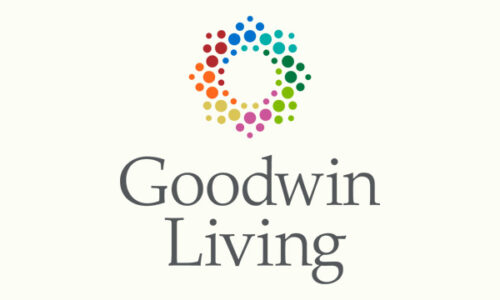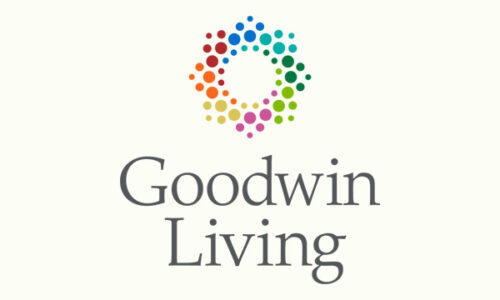August 19, 2019
How a Resident Turned Passion into Publishing
Recently, The Good Life received an email that started with this: “Hello! My name is Dan Dietz, and I’m a resident of GHBC. My tenth book was just recently published, and a regular reader of the blog thought the books would make a good article.”
Curiosity piqued, we reached out to learn more. Blog contributor Amber McCracken spent hours speaking with Dan and prepared this Q&A to share.
Where did your love of theater come from?
Broadway was all around me growing up. My parents Celia and Frank enjoyed show music, and Broadway cast albums dominated our record shelves. One day, a friend of my parents gave me a huge collection of old playbills going back to the 1920s. Immediately, I was hooked on Broadway memorabilia and started collecting theatre programs and the like. I have nearly 30,000 items in my collection, including programs, flyers, posters, recordings, scripts, etc.
For most of my life, the theatre was a hobby. My career touched on performing arts when I taught the history of modern drama at Western Carolina University. After teaching, I served with the U.S. Government Accountability Office and the U.S. Education Department. During these years, I always made time for the theatre. After grad school, I started making week-long trips to New York, where I’d see six or seven shows during each visit. Back then, you could get center orchestra seats for around $10.00 tops (and no service charge!), so I could see seven shows for a portion of the cost for one Broadway show today.
Do you remember your first play or musical?
I remember both! The first play I saw was The Bad Seed. My parents took me when I was nine years old. I wanted to see it because I’d seen an ad for the book version touting it as a murder story involving a child and a killer. I was surprised when I saw the play and discovered that the CHILD was the killer! A shock for a nine-year-old, to be sure.
I saw my first musical, Fiorello!, in Norfolk, VA. It had won the Pulitzer Prize, and I saw the touring company when it came through town. I was struck by the personal and powerful nature of live entertainment.
When did your hobby turn into the idea of writing a book?
I had thousands of playbills in my collection and many were of unknown, Off-Broadway musicals. I started doing some personal research on these obscure musicals and realized there wasn’t much information out there. But my playbills contained a lot of information, so I started making notes. One hundred pages of notes later, I thought “hey, this could be a book!”
I sent what I had written to a publisher, and they loved the idea. So from that research came my first book, Off-Broadway Musicals, 1910-2007: Casts, Credits, Songs, Critical Reception and Performance Data of More Than 1,800 Shows (2010; published by McFarland & Company, Inc.), which was selected as one of the outstanding reference sources of 2011 by the American Library Association.
How has Off-Broadway changed since those early days of theatre?
Prior to the 1990s, Off-Broadway shows didn’t always aspire to Broadway. These shows were small in scale and were content to play in small, Off-Broadway theatres. But now everything seems geared for Broadway, and today it’s almost a given that every Off-Broadway hit will eventually transfer to Broadway. It’s interesting to note that during the summer of 2007, there were no less than seven musicals on Broadway which had originated Off-Broadway. Now the goal always seems to be Broadway, and I guess this is perfectly understandable from a marketing perspective. A Broadway run provides the exposure to open the door for future regional, community, college and dinner theatre productions, not to mention London, other overseas productions and film or television versions.
Your books chronicle decades of musicals. Which decade do you think produced the best musicals?
For me, the 1940s were the golden decade of Broadway musicals. Those years gave us South Pacific, Oklahoma!, Carousel, Annie Get Your Gun, Kiss Me, Kate, Brigadoon, On the Town, Pal Joey, Lady in the Dark and Finian’s Rainbow. In that decade, we had an amazing group of legendary Broadway lyricists and composers, among them Rodgers and Hammerstein, Irving Berlin, Cole Porter, Lerner and Loewe, Leonard Bernstein, Jule Styne, Burton Lane, and Kurt Weill. These writers created “book” (or story) musicals in which their songs provided plot and character information, not to mention the atmosphere.
While I appreciate the evolution of the musical in the years following this golden age, I don’t particularly like the trend of so-called jukebox musicals. These are musicals that take old songs and craft a new plot around them. For instance, the musical Summer just recently played on Broadway. It’s simply a collection of Donna Summer’s hit songs, shoehorned into a concert-like story about her life.
Other recent and forthcoming musicals feature old songs popularized by Cher, The Temptations, Tina Turner and Michael Jackson—these musicals take old songs and force them into new plots. In a similar fashion, Mamma Mia uses pop songs by ABBA to tell a new story. For me, the unfortunate aspect of this trend is that we’re not cultivating the new composers and lyricists of tomorrow.
What is your all-time favorite musical?
It’s hard to say which one is my favorite because there are so many. But the one that had the most profound effect on me was Stephen Sondheim’s Follies, which I saw six times on Broadway during its original production in the early 1970s. It’s a serious musical in which the characters look back on their lives and wonder what went wrong. Both funny and sad, the show was rich in nuances which saluted old-time musical theatre. At the same time, it was edgy in how it provided a fluid concept of time and space where the older characters interact (and even argue) with their younger selves.
When you’re not writing, you present lectures for the Goodwin Living community. Can you tell me more about that and what you have coming up in the series?
These are a lot of fun! We started out in some of the smaller community rooms at Goodwin House Bailey’s Crossroads, with an audience of about 30 to 40. The series has caught on and become so popular that we now host the talks into our auditorium, which seats up to 150!
I try to focus on an interesting topic. For instance, I recently gave presentations on the 1930s musicals of Cole Porter, and another one on the forgotten team of DeSylva, Brown, and Henderson. Sometimes, one talk might focus on an entertainer (take Ethel Merman as an example), while another one looks at the neglected musicals of Rodgers and Hammerstein.
The best part of my talks is the audience. We have a great group of residents, and they share stories about their theatre experiences. These talks engender happy memories and give us a chance for an hour of nostalgia.
One of my upcoming talks will feature the musicals of Harold Arlen (most remembered for his songs from the movie The Wizard of Oz, but he wrote some great music for the theatre), and another one will look at the songwriting team of Jerry Bock and Sheldon Harnick, whose most well-known work is Fiddler on the Roof. I’ll discuss their Broadway musicals, and will focus on one of their most neglected shows, Tenderloin, which has terrific lyrics and music.
How can people purchase your books?
My books are sold through the publishers, through Amazon, and other sources. My most recent book is The Complete Book of 1920s Broadway Musicals, and my publisher has just recently announced a summer 2020 publication date for The Complete Book of 2010s Broadway Musicals. It looks as though The Complete Book of 1910s Broadway Musicals will be published in late 2020. On the horizon is my Complete Book of 1900s Broadway Musicals and a book about film musicals.
When I write, my goal is to bring each show to life. Each show has its own entry, and my hope is that after reading an entry the reader will come away with a better understanding of the musical. I try to introduce obscure albeit hopefully interesting and entertaining information about a show, information which in effect “personalizes” a long-ago and forgotten show and brings it to life. I want my books to be more than dry reference books! There’s a review of one of my books that I particularly treasure. The reviewer said the book contained more information than you probably want to know, but at the same time, the book was too much fun to put down. That’s my goal, exactly.
The Complete Book of 1930s Broadway Musicals (2018)
The Complete Book of 1940s Broadway Musicals (2015)
The Complete Book of 1950s Broadway Musicals (2014)
The Complete Book of 1960s Broadway Musicals (2014)
The Complete Book of 1970s Broadway Musicals (2015)
The Complete Book of 1980s Broadway Musicals (2016)





